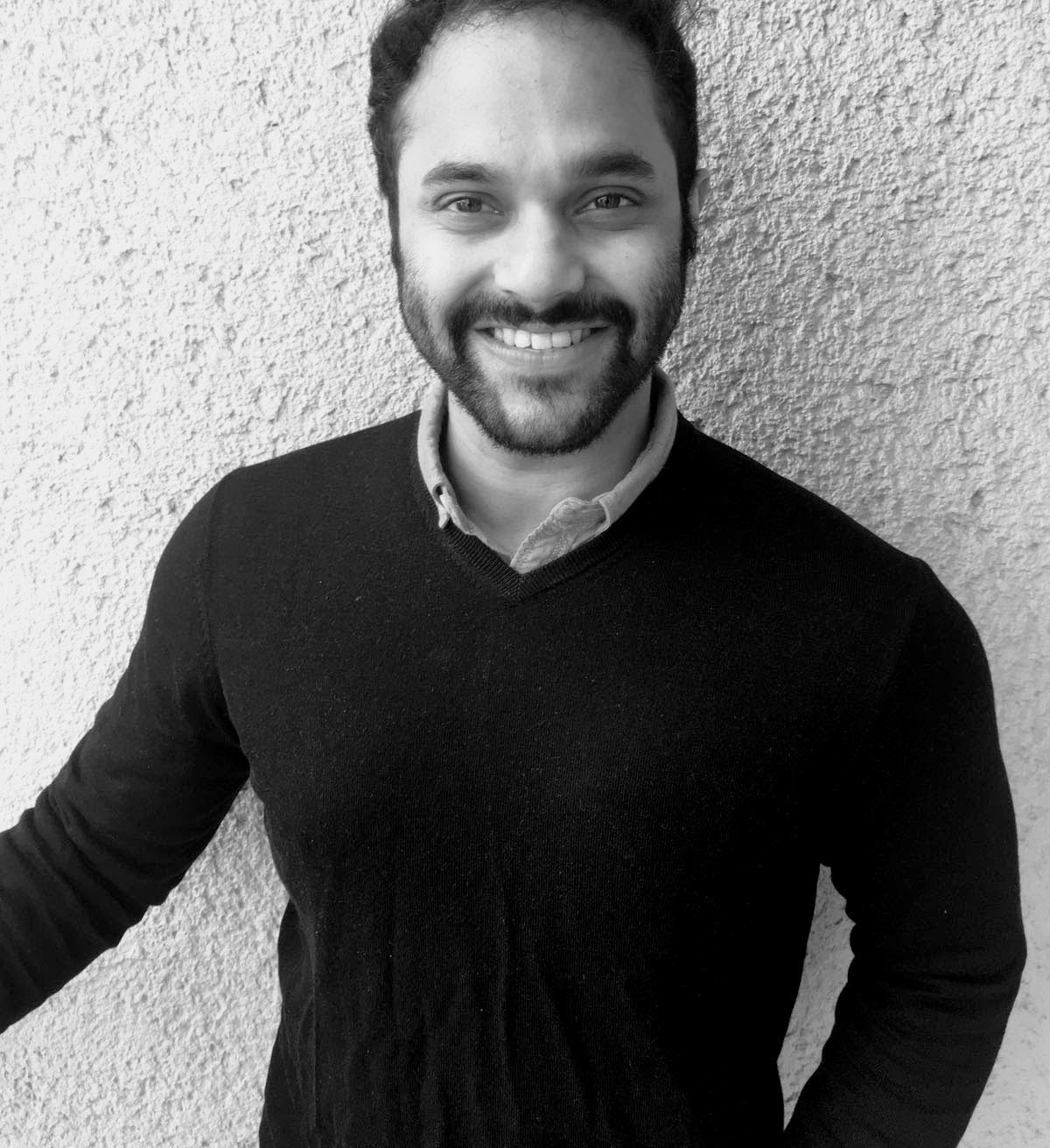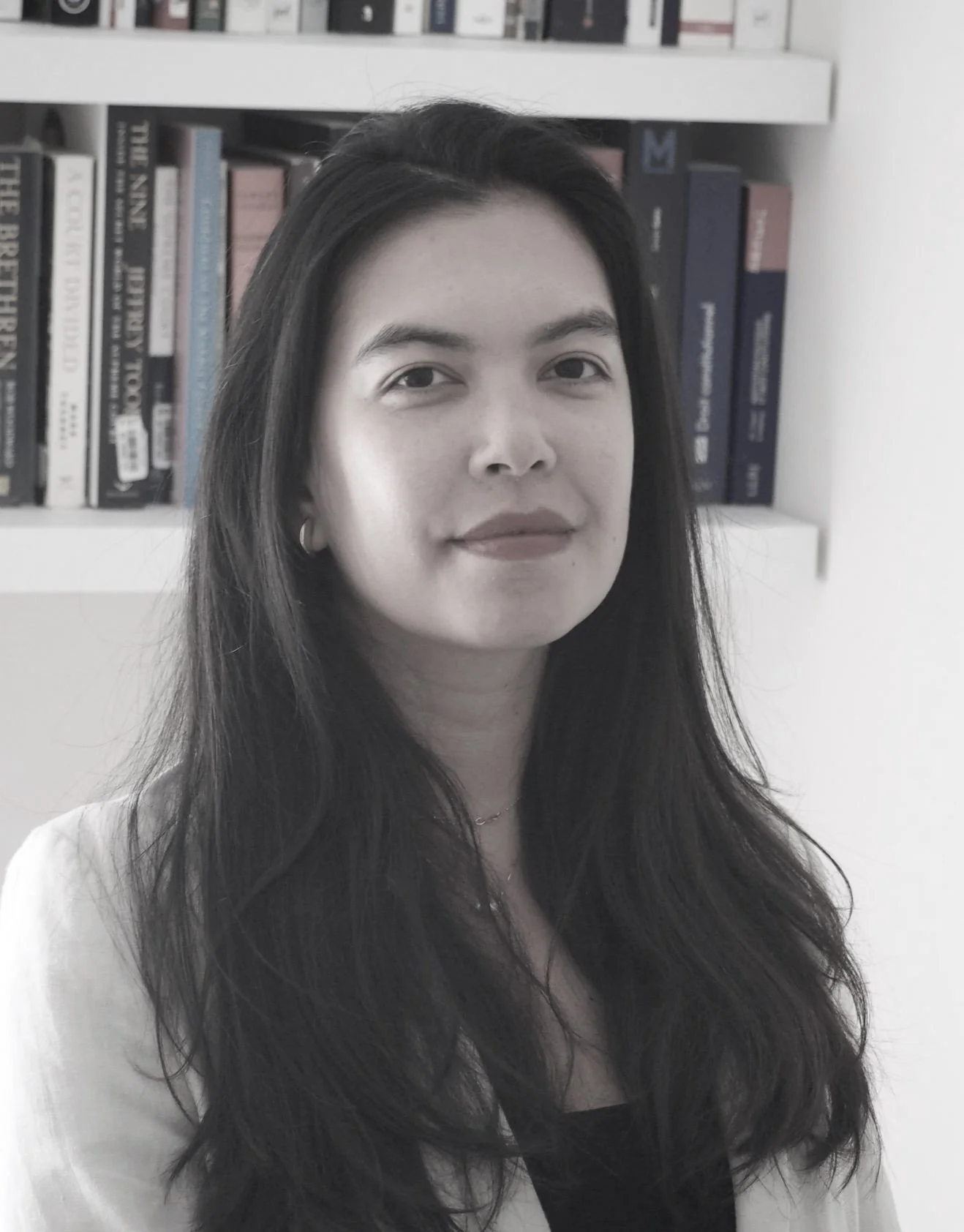CO-EDITORS
Saoirse Enright
Dr Saoirse Enright is a first class honours Bachelor of Laws and Master of Laws graduate of the University of Limerick. During the final year of her undergraduate studies, Saoirse received a scholarship to extern in the Los Angeles Superior and Federal District Courts. This experience enhanced her interest in the judicial decision-making process, which she pursued during her LLM and PhD at the University of Limerick. Her PhD thesis, funded by the University of Limerick and the Irish Research Council, analyses Mr Justice Brian Walsh’s contribution to judicial decision making and the role of the judge in Irish law. During her PhD, Saoirse developed adjacent research interests. She worked as a research assistant and analysed trends in judicial appointments to the Court of Appeal in Ireland. This directed Saoirse’s attention to the subject of socio-economic diversity in the Irish legal profession, which she is currently researching within her role as the Matheson Diversity in Law Newman Fellow at the Sutherland School of Law, University College Dublin.
Seána Glennon
Dr Seána Glennon is a postdoctoral fellow at the University of Ottawa Public Law Centre funded by the Unwritten Constitutional Norms and Principles project, which examines unwritten constitutionalism in the UK, Canada and Germany. Her doctoral research focused on the role of citizen deliberation in constitutional and legislative reform processes, and the novel institutional innovations, such as citizens’ assemblies, that can facilitate this. Her postdoctoral research project is examining how these bodies can be institutionalized within the broader system of representative government in Canada. Seána holds law degrees from Trinity College Dublin (LL.B) and the University of Toronto (LL.M). She completed her PhD at University College Dublin where she was a Sutherland School of Law Doctoral Scholarship holder. Seána previously practised as a lawyer in an international law firm in Dublin, specialising in public and administrative law.
Pravar Petkar
Dr Pravar Petkar is a Researcher at the International Centre for Sustainability in London, UK. His research work spans issues of constitutional and democratic reform in the UK and India. He has specific research interests in participatory and deliberative democracy, territorial pluralism and theories of constituent power and constitutional legitimacy. Pravar has a PhD from the University of Edinburgh, where his thesis explored how the legitimation of constitutional change in the UK through constituent power acts as a new form of political constitutional constraint on parliamentary sovereignty. Pravar also holds an MA (Cantab) in Law from the University of Cambridge and an LLM in Public Law from the London School of Economics and Political Science.
ASSOCIATE EDITOR
The Associate Editor manages the day-to-day running of the blog and coordinates the blog team, as well as providing vital copy editing and other support to the Co-Editors.
The current Associate Editor is:
Natalia Morales Cerda
Dr Natalia Morales Cerda is a Postdoctoral Research Fellow at the Global Centre for Democratic Constitutionalism (GCDC) and an Associate Lecturer (Teaching) at University College London (UCL) Laws. Her research examines constitutional democracy from a comparative perspective, with particular emphasis on gender constitutionalism, constitution-making processes, and political representation. She has published extensively on these topics in the context of Latin America, and has collaborated with governmental and civil society organisations on projects related to legal reform, reproductive rights, and gender equality.
Prior to joining UCL, she served as a legal advisor to the Ministry of Women and Gender Equity in Chile. She has been a visiting researcher at the Instituto Tecnológico Autónomo de México (ITAM) and at the Università degli Studi di Milano. She holds a law degree and an LLM from the University of Chile, as well as an MA in Gender Studies from the University of Sussex, and is a qualified lawyer in Chile.
ASSISTANT EDITORS
The Assistant Editors perform initial reviews of posts and provides vital copy editing support, working closely with contributors to ensure clarity and readability of posts.
The current Assistant Editors are:
Joshua Snukal
Joshua is a PhD candidate at Melbourne Law School. He researches in the field of comparative constitutional law, with a focus on law in times of crisis and counter-terrorism measures. Before joining Melbourne Law School, Joshua completed articles of clerkship at the Provincial Court of Alberta and practiced criminal law. He holds an MA (Honours) from the University of St Andrews, a JD from the University of Calgary, and an LLM from the University of Southern California.
Neslihan Cetin
Neslihan Çetin is a PhD candidate at the University of Paris I Panthéon-Sorbonne in Public Law. Her doctoral thesis concerns the deterioration of the rule of law in Turkey and its implications on the protection of human rights and freedoms. She holds a Dual Bachelor’s Degree in Law and Political Science and a Master’s Degree in Comparative Law from the University of Paris I Panthéon-Sorbonne. Her research areas include comparative constitutional law and human rights law, especially hybrid regimes, rule of law, states of exception as well as democratic erosion in the context of authoritarian constitutionalism. She is currently a teaching assistant at the University of Paris-Est Créteil (Paris XII) and teaches constitutional law and administrative law.
Gaurav Mukherjee
Gaurav is an S.J.D. candidate in Comparative Constitutional Law at the Central European University, Vienna (CEU) and a Visiting Doctoral Researcher at NYU Law. Gaurav's doctoral project examines the contested role of courts as agents of progressive social transformation. His research explains the increasing role of complex, multi-stage remedies in constitutional litigation, and the ways that it interacts with the separation of powers and principles of democratic legitimacy.
Gaurav has held visiting fellowships at the Bonavero Institute of Human Rights at the University of Oxford, the Max Planck Institute for Comparative Public Law & International Law, Heidelberg, as well as the Equality Law Fellowship at the University of Melbourne. He is a co-convenor of the International Association of Constitutional Law Research Group on Social Rights and an Assistant Editor for RevDem, a journal of the Democracy Institute at CEU. He has taught courses at the intersection of law & political science at CEU, University of Verona, National Law School of India University (NLSIU), Bangalore, India, and Asian University for Women, Bangladesh.
Luz Helena Orozco y Villa
Luz Helena Orozco y Villa is a DPhil candidate at the Faculty of Law in the University of Oxford. Her research lies at the intersection of constitutional law and emerging technologies, specifically on Internet governance and the process of constitutionalization of the digital environment. Prior to commencing her doctoral studies in Oxford, she worked as a career clerk at the Mexican Supreme Court of Justice for Judge José Ramón Cossío Díaz, and as a research advisor at the Gender Equality Program of the Federal Judicial Council in Mexico. Luz holds an LLM from Columbia Law School and an LLB from ITAM.
Edgar Ortiz Romero
Edgar Ortiz Romero is a Professor at Universidad Francisco Marroquín and Universidad del Istmo in Guatemala. He is mostly interested in constitutional law, comparative constitutional law and the interaction of political practices and legal institutions. He is the director of legal studies at Fundación Libertad y Desarrollo, a think tank based in Guatemala. In 2020 he published a book chapter about the role of the Guatemalan Constitutional Court in Guatemala’s institutional design. Edgar holds a MA from Universidad Rey Juan Carlos (Spain) and a BA in law from Universidad Francisco Marroquín (Guatemala).
Alexis Ramirez
Alexis Ramirez is an S.J.D. candidate at the University of Virginia School of Law. His research focuses on the relationship between informal constitutional norms and the institutional design established by the written constitution, through a comparative analysis of constitutional systems of civil law countries. Prior to joining UVA Law, Alexis worked a researcher at the Constitutional and Administrative Studies Center of the Universidad Mayor in Chile. Alexis holds a Bachelor of Laws (LL.B.) from the Universidad de Chile and a Master of Laws (LL.M.) from the University of Virginia.
Francisco Javier Romero Caro
Francisco Javier Romero Caro (PhD) conducts research on Comparative Constitutional Law. He has been Senior Researcher at the Institute for Comparative Federalism of Eurac Research in Bolzano/Bozen, Assistant Professor at the Department of Law at Nebrija University and Postdoc researcher at the University of the Basque Country, focusing on territorial distribution of powers in multilevel systems (with a special focus on federal states) and territorial integration and secession in states such as Canada or Spain. He won the XVII “Manuel Giménez Abad” Award and the European Commission awarded him with the Seal of Excellence in the Horizon 2020 Marie Skłodowska-Curie call in a joint application with EURAC in a project on fiscal federalism. He has been a visiting researcher at the CEPC, the Max Planck Institute for Comparative Public Law, the University of Ottawa and the University of Edinburgh.
Maria Savranina
Maria Savranina is a PhD Candidate at the University Paris 1 Panthéon-Sorbonne, focusing primarily on authoritarian constitutionalism, particularly the specific case of the Russian Federation. Such is the subject of her thesis, directed by Professor Pierre Brunet, geared towards understanding its specific nature. Her research interests include Comparative Law (epistemology, methodology, transplants), Public Law (with a focus on French administrative and constitutional law), State Theory and Authoritarian Constitutionalism. Maria holds a Masters 1 in Public Law and a Masters 2 in Comparative Law, both from Panthéon-Sorbonne. While working on her thesis, Maria currently holds Teaching Assistant positions in Constitutional Law and Fundamental freedoms.
Paul Fisher
Paul Fisher is a practising lawyer. He has degrees in jurisprudence from the University of Oxford (BA/BCL) and a Russian Studies Masters from University College London. He is also a PhD researcher at University College London’s School of Slavonic and East European Studies with a particular focus on the use of constitutional amendments by non-democrats to address threats to their leadership. His research is funded by an Economic and Social Research Council (ESRC) grant offered through the UCL, Bloomsbury and East London ("UBEL") ESRC Doctoral Training Partnership
Alemayehu Fentaw Waldemariam
Alemayehu Fentaw Weldemariam is currently a PhD Fellow at Indiana University Maurer School of Law’s Center for Constitutional Democracy, specializing in comparative constitutionalism and constitutional design with subfields in democratic and constitutional theory, and area studies focusing on Ethiopia and the Horn of Africa. He holds a lectureship at Mekelle University School of Law, where he teaches constitutional law, federalism, and human rights. Alemayehu has also taught legal theory, political theory, and peace and conflict studies at various universities in Ethiopia and abroad, including Jimma University, University of Texas at Austin, and Suffolk University. He has delivered lectures at the University of California at Santa Barbara, Villanova University, Doshisha University in Kyoto, Japan, and Carleton University in Ottawa, Canada. He serves as a Country Expert and Coder for the Varieties of Democracy (V-Dem) Project at Gothenburg University in Sweden. Alemayehu is a Salzburg Global Fellow in Peacemaking and Peacebuilding and an alumnus of the Academy for International Business Officials in Beijing, China. Alemayehu holds an LLB from Addis Ababa University, an MA in Peace and Conflict Studies from the European University Center for Peace Studies, Stadtschlaining, Austria, and an MS in Conflict Analysis and Resolution from George Mason University. He has also completed a year of graduate training in the Great Books at St. John’s College’s Graduate Institute in Annapolis, MD, and spent another year in the MA in Ethics and Philosophy program at George Mason University in Fairfax, VA. He regularly contributes to Ethiopia Insight and has appeared in several media outlets. Alemayehu publishes extensively on Ethiopian laws, politics, and foreign affairs.
Mariana Almeida Kato
Dr Mariana Almeida Kato is a Teaching Associate at the University of Nottingham. Previously, she worked as a Teaching & Research Assistant at the Université Grenoble Alpes and at the Université de Reims Champagne-Ardenne, where she completed her fully-funded PhD in Comparative Constitutional Law. Her thesis was awarded the 2022 Dalloz Thesis Prize and was published in 2023. In her doctoral research, she studies judicial transparency in the context of the French Constitutional Council, the Brazilian Supreme Court, and the US Supreme Court. She argues that even if the meaning and scope of transparency are deeply embedded in each legal culture, transparency both as a practice and as a discourse is at the core of a broader phenomenon related to how judicial legitimacy is currently understood and the importance of public opinion. Moreover, she demonstrates how institutional and personal habits and practices related to transparency, such as the ones related to the Court’s communication, may have an impact on the life of a jurisdiction. In more recent work, she has explored other themes regarding the dynamic role of Constitutional Courts and Human Rights Courts in the contemporary political context, and the changing demands of society. Mariana also holds a Master’s Degree in Public Law from the Paris 5 – Descartes University and a Master’s Degree in Constitutional Law and Fundamental Rights from the Panthéon-Sorbonne University.
Bruno Santos Cunha
Bruno Santos Cunha is a State Attorney and Constitutional Law Professor based in Recife, Brazil. He holds a Bachelor of Laws from the Federal University of Santa Catarina (Brazil, 2007), a Master of Laws from the University of São Paulo (Brazil, 2014), and an LL.M. from the University of Michigan Law School (USA, 2017). He is currently pursuing a PhD in Constitutional Law at the Federal University of Pernambuco (Brazil, 2021-2025). Bruno was a Visiting Research Scholar at The Ohio State University Moritz College of Law (2022-2024) and a Visiting Researcher at the Federal Supreme Court of Brazil (2021-2022). He is an associate editor of the International Review of Constitutional Reform (IRCR), edited by Professor Richard Albert and Justice Luis Roberto Barroso, and published by the Constitutional Studies Program at the University of Texas at Austin in collaboration with the International Forum on the Future of Constitutionalism. He is interested in comparative constitutional law, constitutional history, global judicial dialogue, globalization of constitutional law, and the use of foreign law by national constitutional courts, with a particular focus on the Brazilian Federal Supreme Court. Additionally, Bruno has translated several legal works from English to Portuguese, and is fluent in Portuguese, Spanish, and English.
Francesco Lucherini
Francesco Lucherini is a post-doctoral researcher at the Department of Legal Studies of the University of Bologna. He holds a PhD in Comparative Constitutionalism (June 2024) from the University of Bologna and has previously held visiting positions at Central European University (in Vienna, Austria) and Cardozo Law School (in New York, USA). His research interests lie primarily with comparative social rights theory and environmental constitutionalism, though he moves across all areas of comparative constitutional theory. His doctoral thesis examined social rights adjudication in three continental European jurisdictions (Italy, Germany and Portugal), highlighting the relevance of “interpretative positioning” for an accurate understanding of the normativity of social egalitarian end goals in constitutional interpretation.
Candice Maharaj
Candice Maharaj is a PhD researcher and graduate teaching assistant at University College Dublin, Sutherland School of Law. Her research focuses on the potential definition and operationalisation of the right to a healthy environment in the Irish Constitution and includes a comparative analysis of the right in the constitutions of other jurisdictions. Candice also holds an LLB (Hons.) and LLM in International law from the University of Edinburgh.
Maxime Millon
Maxime Millon is a PhD Candidate at the University of Bordeaux. His research focuses on new forms of democracy, especially the inclusion of citizens in public decision-making. Under the supervision of Professors Marie-Claire Ponthoreau and Charles Édouard Sénac, he is working on a thesis in comparative Franco-Irish constitutional law on citizens' assemblies. In addition to his doctoral research, his work focuses on institutional constitutional law and constitutional litigation, both national and comparative. He was a research fellow at University College Dublin under the supervision of Marie-Luce Paris, where he taught French constitutional law and the law of the European Convention on Human Rights. During his time in Ireland, he was also an academic observer at the Citizens' Assembly on Drugs Use. He has been teaching assistant in constitutional law and administrative law at the University of Bordeaux for several years and is attached to the Centre d'Études et de Recherches Comparatives sur les Constitutions, les Libertés et l'État (University of Bordeaux) and the Centre for Human Rights (University College Dublin) and works regularly with the French Embassy in Ireland.
Guy Kelleher
Guy is a public law researcher with expertise in constitutional and political theory. He teaches constitutional law at the University of Bristol Law School, where he is completing his doctoral thesis, funded by a full faculty scholarship.
Guy’s research has been presented widely across Europe, the United States, the Middle East and Australia and has appeared in leading academic publications. His work has attracted a variety of grants and awards from international bodies, among which the European Society of International Law, the German Federal Foreign Office, Harvard University, the Historical Archives of the European Union and the International Law Association.
Guy’s research is underpinned by extensive experience working in legal practice and international relations across peak national, intergovernmental and European Union institutions.
Jiacheng Gong
Jiacheng Gong is a PhD candidate and Graduate Researcher Academic Associate affiliated with the Centre for Comparative Constitutional Studies (CCCS) at Melbourne Law School. His doctoral research focuses on the constitutional theory of political liberalism, with a special emphasis on the legitimacy of judicial review. Born and bred in China, Jiacheng obtained his LLB and LLM from the University of Manchester and the London School of Economics, respectively. Jiacheng’s general research interests include theoretical aspects of constitutional rights and judicial review, authoritarian constitutionalism, and transnational constitutionalism.
CONTENT & COMMS ASSISTANT
The Content & Comms Assistant is responsible for critical technical tasks like the publication of blog posts and their promotion through our newsletter and social media profiles.
The current Assistant is Bertil Vasiljev Brundstedt
FORMER BLOG TEAM
The IACL-AIDC Blog was founded in 2014 by former President Martin Scheinin, with the aim of building an online community of people interested in constitutional law. Between 2015 and 2017, the Blog was managed by the Communications Commission of the Executive Committee of the International Association of Constitutional Law: César Landa, Adrienne Stone, Andrew Le Sueur and Grégoire Webber.
In 2018, Erika Arban and Tom Daly were appointed Co-Editors and charged with transforming and relaunching the Blog to provide a meeting place for constitutionalists around the world, cultivate conversations on constitutional law issues, and to enhance our network to be inclusive of all regions of the world, as set out in our Mission Statement.
The IACL-AIDC Blog has greatly benefitted from editorial leadership from many constitutional scholars. We thank each and every one of them for their contribution to the IACL Blog.
Elisabeth Perham, Co-Editor February 2023 – September 2025; Associate Editor January 2022 – February 2023; Assistant Editor, November 2020 – December 2021
Mariana Velasco-Rivera, Co-Editor January 2022 – September 2025; Associate Editor April 2021 – December 2021
Anna Dziedzic, Co-Editor, 2022-2023
Erika Arban, Co-Editor, 2018 – 2021
Dinesha Samararatne, Co-Editor, 2019 – 2021
Tom Daly, Co-Editor, 2018 – 2020
Irene Parra Prieto, Associate Editor, September 2023 – December 2024
Toerien van Wyk, Associate Editor, January 2019 – May 2021; Assistant Editor, June 2021 – December 2022
Jesse Hartery, Assistant Editor, January 2023 – September 2025
Marie Gren, Assistant Editor, March 2022 – December 2024
Orlaith Rice, Assistant Editor, October 2022 – February 2024
Ayesha Wijayalath, Assistant Editor, January 2021 – July 2023
Miriam Cullen, Assistant Editor, June 2021 – April 2023
Alexandra Flynn, Assistant Editor, October 2021 – November 2022
Nomfundo Ramalekana, Assistant Editor, August 2021 – November 2022
Phoebe Galbally, Assistant Editor, December 2020 – March 2022
Iain Payne, Assistant Editor, August 2021 – February 2022
Julian Murphy, Assistant Editor, May 2020 – February 2021
Darshan Datar, Assistant Editor, October 2019 – January 2021
Elizabeth Hicks, Assistant Editor, May 2020 – January 2021
We are also grateful for the support of former Communications Assistants Thenu Herath, Stephanie Benker, Imogen Timms, Camille Hellesen and Emma Marie Sejr






















